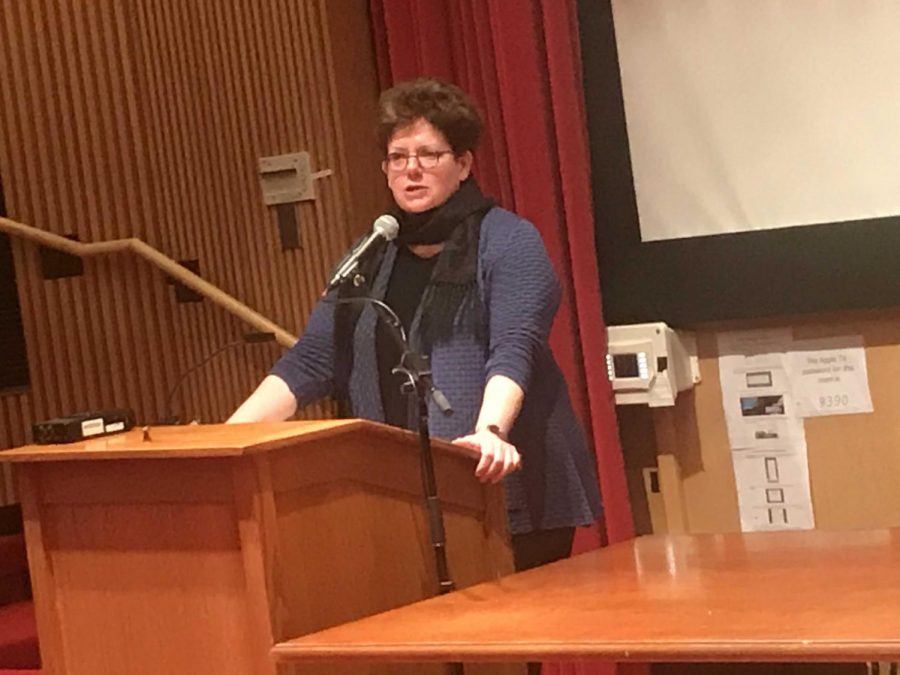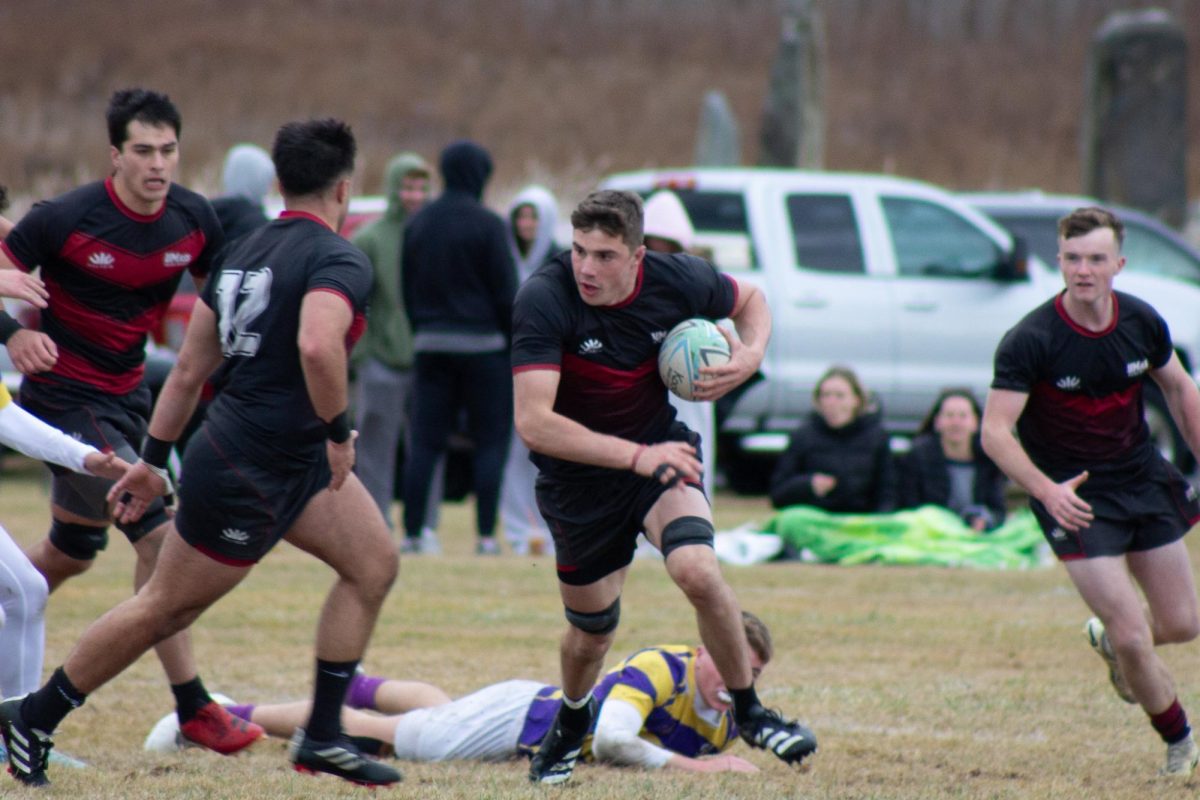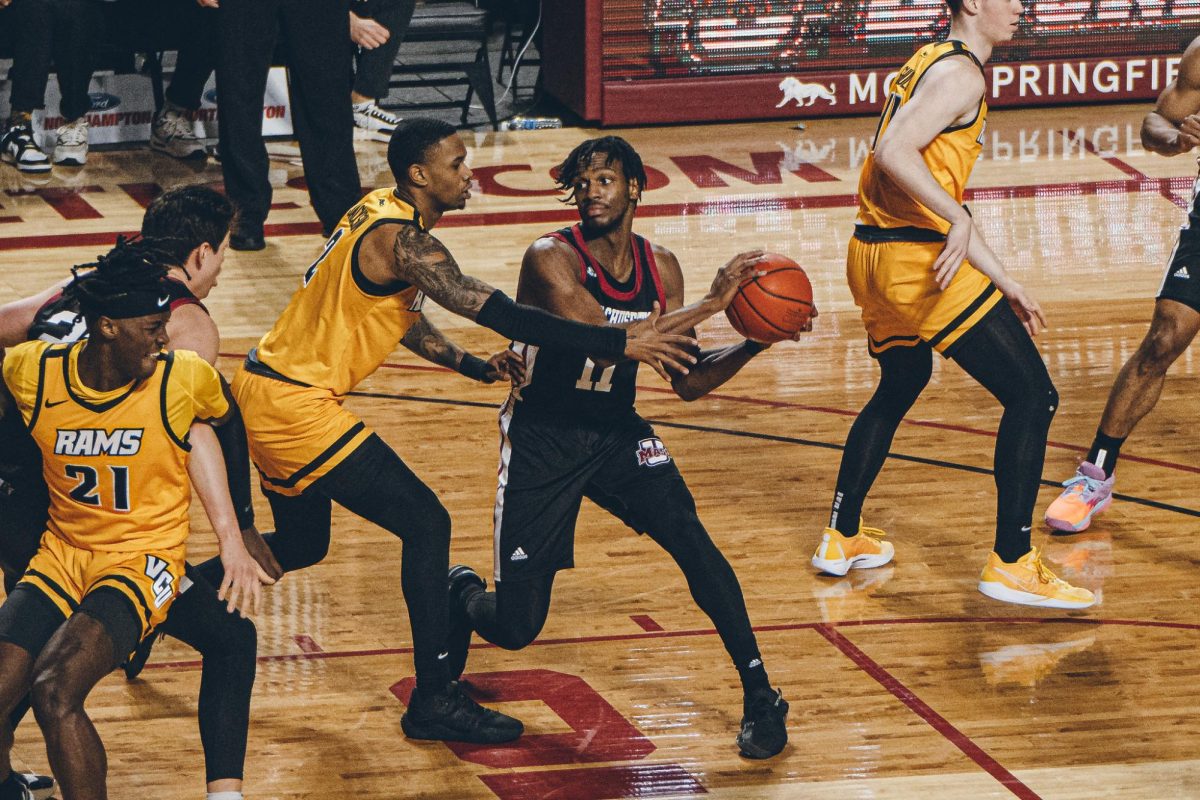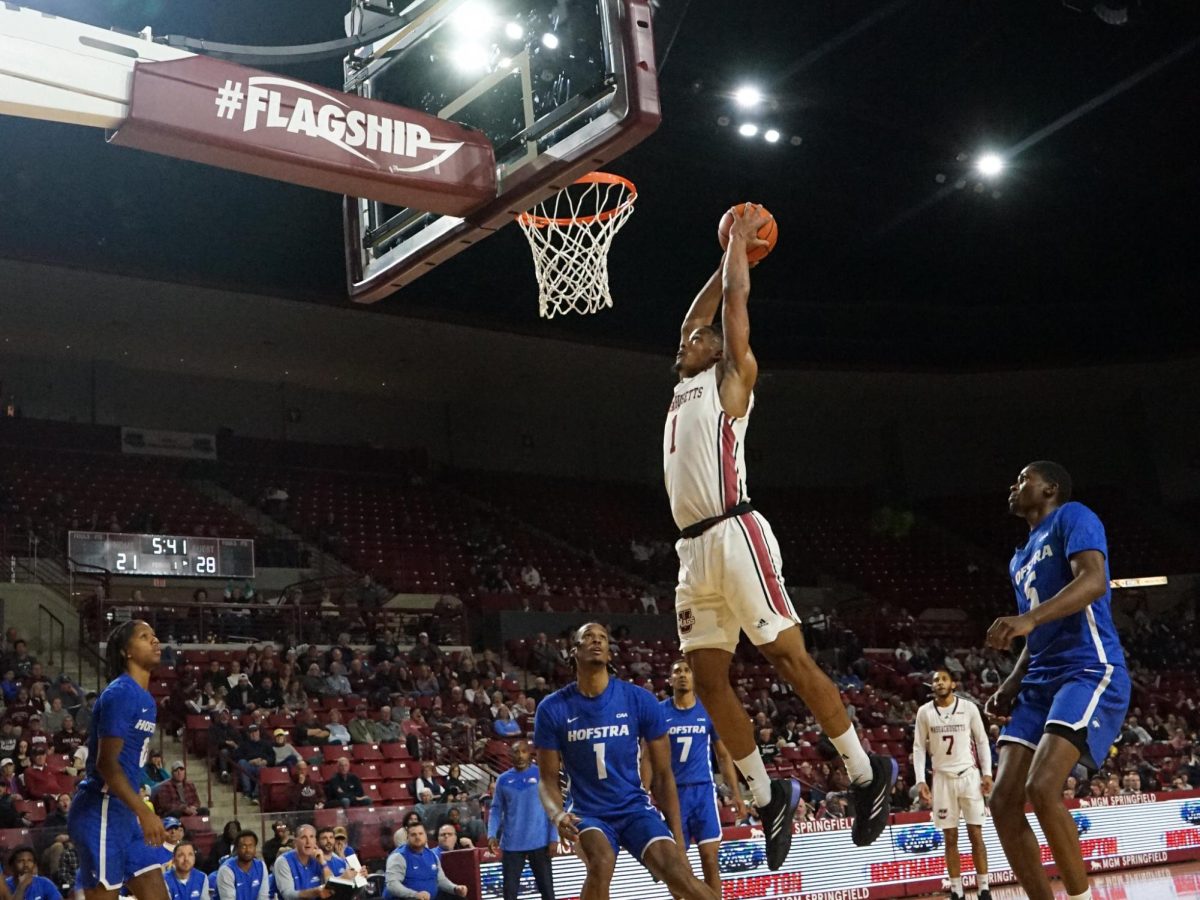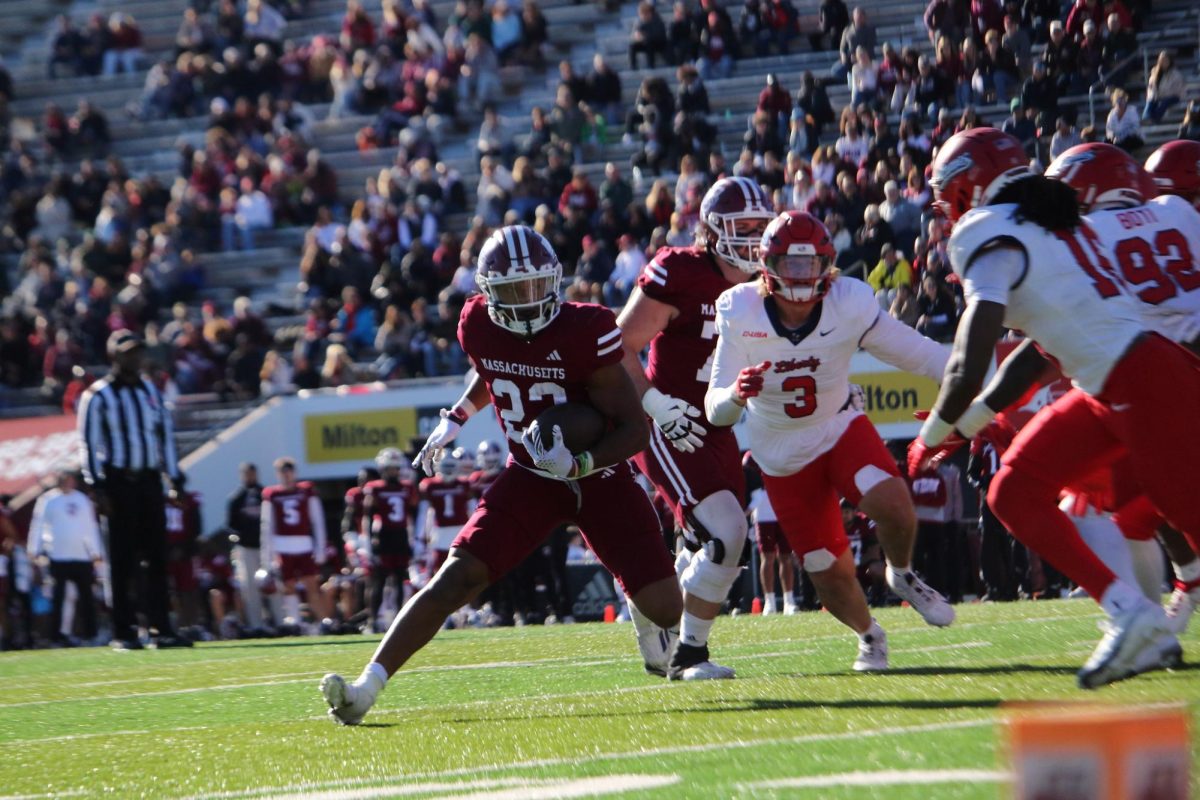Amherst College President Biddy Martin delivered the second annual State of the College Address on Monday night, primarily addressing issues of forming a strong community within the college.
In addition to Martin’s address, the event featured speeches from former Association of Amherst Students President Aditi Krishnamurthy and Chief Diversity and Inclusion Officer Norm Jones. The event as a whole, which was hosted by AAS Senator Sade Green, focused primarily on possible methods that may help forge stronger ties among the college’s community.
In her address, Martin claimed that the college needs to take steps in order to promote a sense of community within the college. However, she also argued that such a sense does exist on campus, and that feelings of a lack of community may be exaggerated.
“So, I say to myself, yes, when it comes to forming a sense of community, we have work to do and I don’t think anyone doubts it,” President Martin said. “On the other hand, we can, in our critical mode, exaggerate what we see as the absence of a sense of community.”
President Martin cited the unveiling of the mammoth mascot last year as well as the recent deaths of Black studies Professor Jeffrey Ferguson and Amherst College students Andrew Dorogi and Christopher Collins as both positive and negative events that have led to the college coming together as a community.
Martin also made sure to emphasize the positive developments that have happened at Amherst College. According to Martin, more students applied to Amherst College in 2018 than any other year in the campus’ history and of the students admitted to the college, the group showed record high indicators of academic success.
In addition, Martin emphasized an increase in diversity in the future class of students.
According to Martin, “If you just look at the perspective class of ’22, what we see is, when it comes to community, the composition of a community that is increasingly diverse and increasingly talented.”
Preceding Martin’s speech, Krishnamurthy and Jones spoke on various methods to increase a strong feeling of community within Amherst College.
In her speech, Krishnamurthy referred to her own experiences where, due to moving to many places during her childhood, Amherst College was the first place that gave her a community she could feel truly a part of. In addition, she argued that the creation of more college traditions, better relationships with the college’s deans and increased listening of students from the administration could lead to a further sense of community within the college.
In his remarks, Jones emphasized the importance of the work done by Amherst College’s Office of Diversity and Inclusion in forging strong ties among all members of the Amherst College community.
He said that the Office of Diversity and Inclusion’s work is about “making the diversity and inclusion agenda institutional in nature, which means that we are not just focused on the student experience, but we are also thinking about the faculty experience and the staff experience so that we better understand how we are experiencing one another as a community.”
In addition, Jones described a variety of initiatives taken by the office to improve the Amherst College community, including better allocating resources to make Amherst College a space where a variety of people can feel included.
Rafael Gonzalez, a first-year economics major at Amherst College and a member of the over 50-person audience, agreed with Martin’s sentiments that a sense of community does exist at Amherst College.
He said, “From a personal perspective, I have found communities that I feel a part of and that I enjoy being a part of. I recognize, as a broader community, that there are more things to work on but overall, I would say it is pretty good.”
Will Friedrichs, a sophomore political science and computer science double major at Amherst College, felt a lot of work needs to be done in order to make Amherst College a more unified community.
“The broader community as a whole is where work needs to be done. I feel at home in a lot of different subsets. It’s not that I don’t feel like I belong here, it’s just that [the Amherst College community] doesn’t feel like a whole; it feels like a bunch of great parts put together,” Friedrichs said.
Will Mallas can be reached at [email protected].

